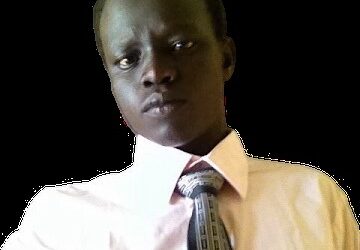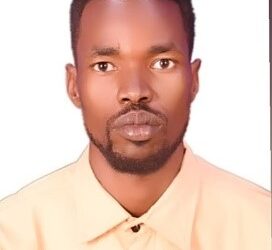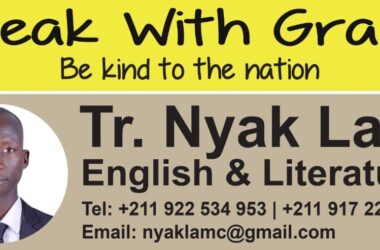By Isaac Chol Aguer
In South Sudan, gunfire no longer startles anyone. It has become part of the country’s daily rhythm and in a place where armed groups outnumber paved roads, silence itself is the most suspicious sound.
Roughly a year ago, a man known to residents of the capital as a wedding entertainer under the alias “Comedian Freeman” made a surreal declaration online: the formation of an armed group called the “People’s Freedom Movement.”
A rebellion with no soldiers, nos bases, no roadblocks — only a handful of youths wearing T-shirts printed with the group’s logo, carrying a virtual flag, and parading a revolutionary anthem generated by Artificial Intelligence (AI) that couldn’t pronounce “Freedom” properly.
As absurd as it seemed, the act wasn’t entirely out of place. In South Sudan’s post-independence politics, those who carry guns get seats at the negotiating table, while those who demand reform through ideas are ignored.
For years, the government has offered incentives to rebels rather than holding them accountable, turning armed rebellion into a shortcut to political office.
About a month ago, a commercial boat traveling through South Sudan’s river network vanished along with its crew.
To date, no one knows what became of them. A local committee was quietly formed to investigate, but no official findings have been released.
The silence surrounding their disappearance, like so many others before it, has become an expected pattern.
Then, just last week, a local paramount chief in Yei County was abducted along with seven others including two humanitarian aid workers and several farmers. The incident concluded, as they often do here, with closed-door negotiations, a ransom paid, and a brief statement: “Hostages released following local community efforts.”
Security sources and unconfirmed reports suggest the abduction could be the work of a rogue faction of the National Salvation Front led by Thomas Cirillo, or one of the newer, unregistered armed groups that frequently emerge and disappear in the country’s lawless hinterlands.
In a nation, teeming with countless militias and warlords, pinpointing culprits has become an almost irrelevant formality.
More troubling still, even established rebel factions aren’t immune to internal fractures.
The SPLM-IO movement, led by Riek Machar, has splintered, with breakaway groups announcing makeshift “governments” in the territories they occupy further deepening South Sudan’s political fragmentation.
What’s unfolding is no longer a mere security crisis; it’s a foundational crisis of statehood itself.
Since independence, South Sudan has been governed by the logic of the rifle. Those who disrupt public order are rewarded. Those who create instability are negotiated with. And those who incite conflict on Facebook patiently await their future share of power.
The formal military has been reduced to an underfunded, secondary force. Its soldiers receive sporadic salaries, while the country’s countless militias, many operating beyond the reach of state authority, dictate the terms on the ground.
The national media, for the most part, has failed to confront this reality. Official statements from the government and opposition figures dominate the headlines, while the deeper, human stories of farmers abducted, traders vanished, and aid workers attacked go unreported.
Worse still, some communities, either out of ethnic loyalty, fear, or political calculation, quietly shield those operating outside the law, further entrenching impunity.
The real danger here is not just Comedian Freeman’s antics, nor a single act of abduction in Yei, but the steady normalization of rebellion as a political tool, and the erosion of state authority as a principle.
South Sudan doesn’t need yet another peace deal or another foreign envoy.
What it desperately requires is a complete reimagining of state legitimacy, a legal system that holds all accountable, an independent security apparatus, and a media brave enough to amplify the voices of victims over political soundbites.
In the end, it won’t be the gunfire that destroys this country, it will be the collective, silent consent to live like this.




